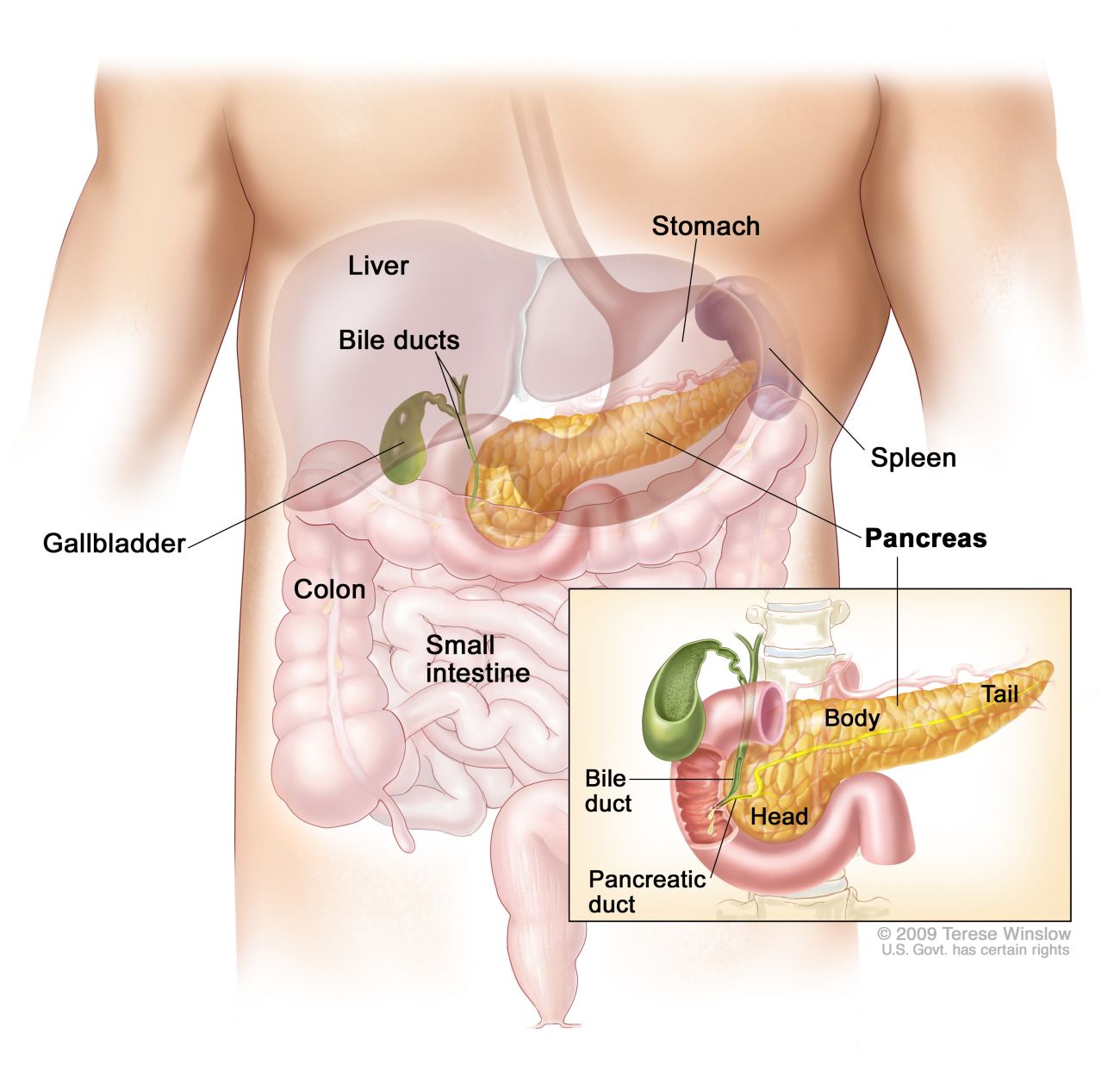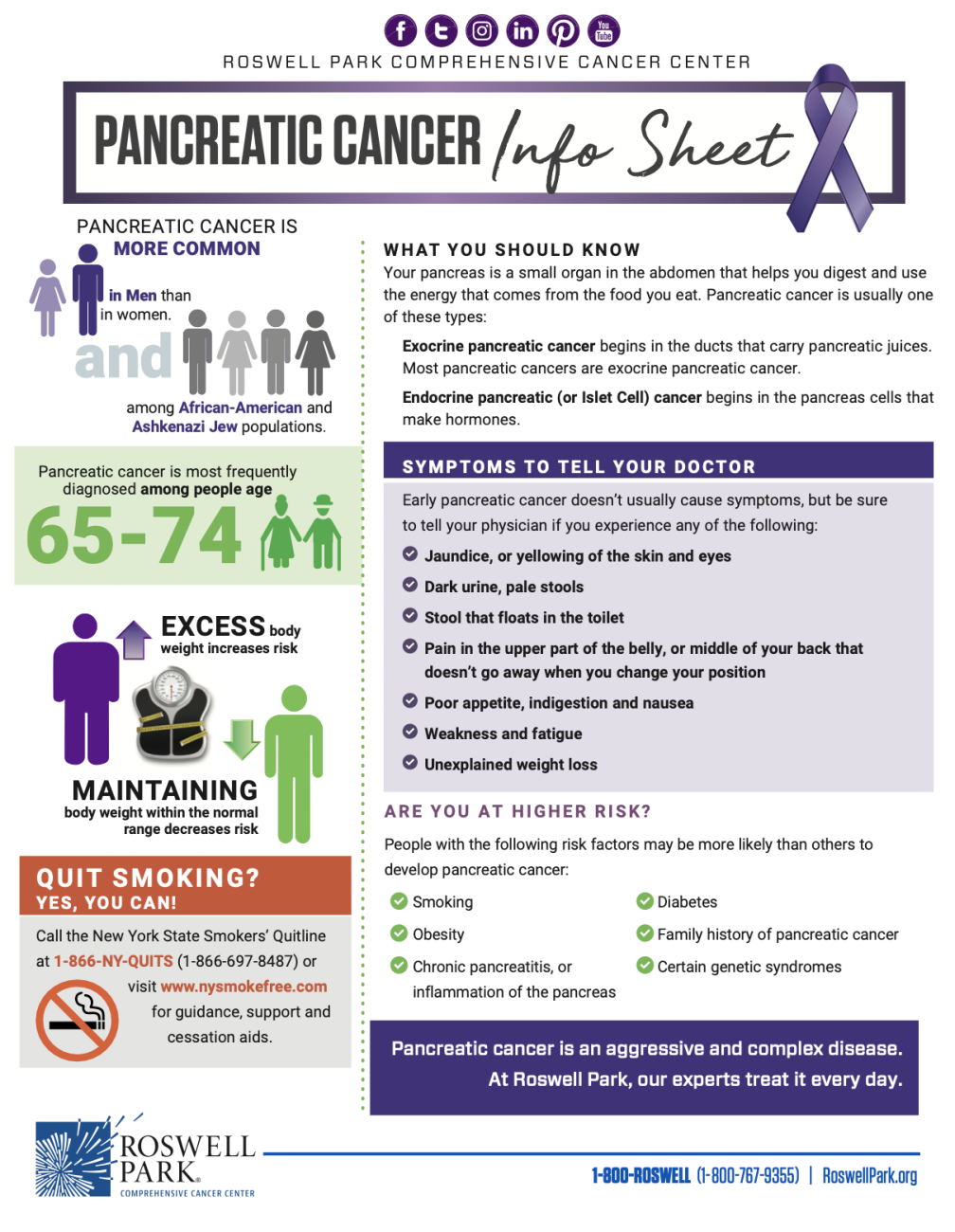Your pancreas is a gland that produces essential enzymes and hormones and is an important part of your gastrointestinal system. Pancreas cancer occurs when cells in the pancreas begin to grow out of control.
This gland sits between your stomach and spine, and is surrounded by your liver, intestines and other organs. Shaped like a flattened pear and about six inches long, the widest part is called the head, the middle section is called the body and the narrowest part is called the tail. The pancreas is made up of two main types of cells:
Exocrine cells produce enzymes like amylase, protease and lipase that help digest the food you eat. Exocrine cells are located in the small ducts (tubes) that lead to the main pancreatic duct running the length of the pancreas, from the head to the tail. About 90% of pancreatic cancers develop from exocrine cells.
Endocrine cells produce hormones like insulin, glucagon, somatostatin and pancreatic polypeptide that regulate blood sugar and help convert the food you eat into energy. Pancreatic cancers that start in the endocrine cells are called neuroendocrine pancreatic cancer or islet cell cancer.
What you need to know about pancreatic cancer.

